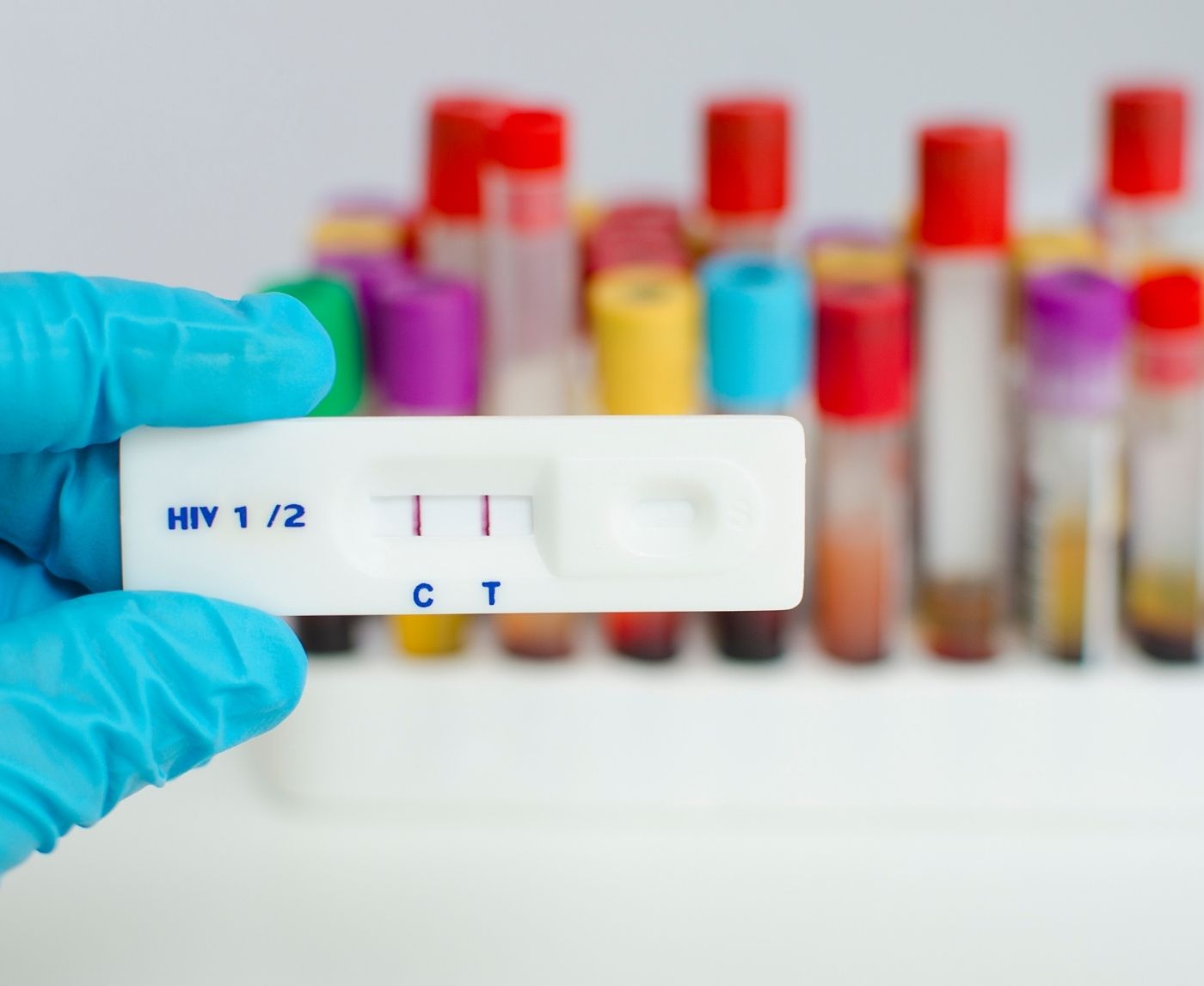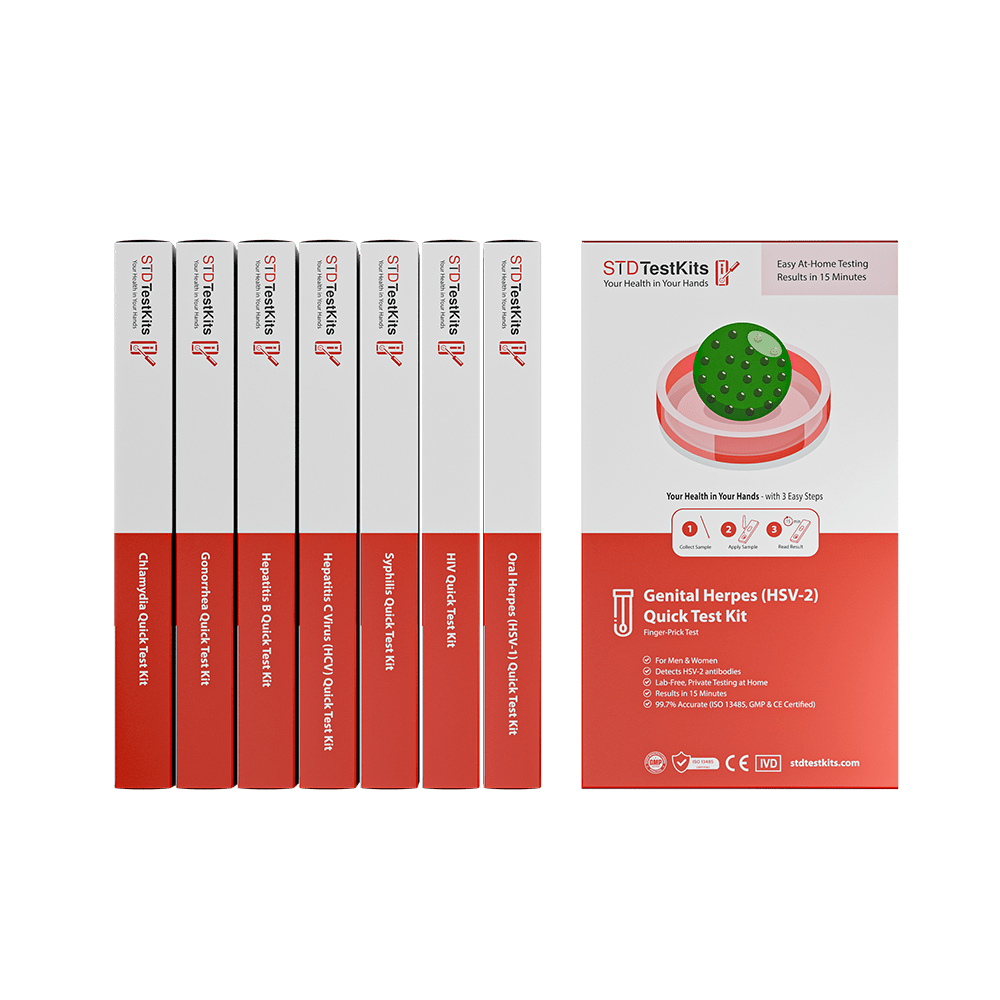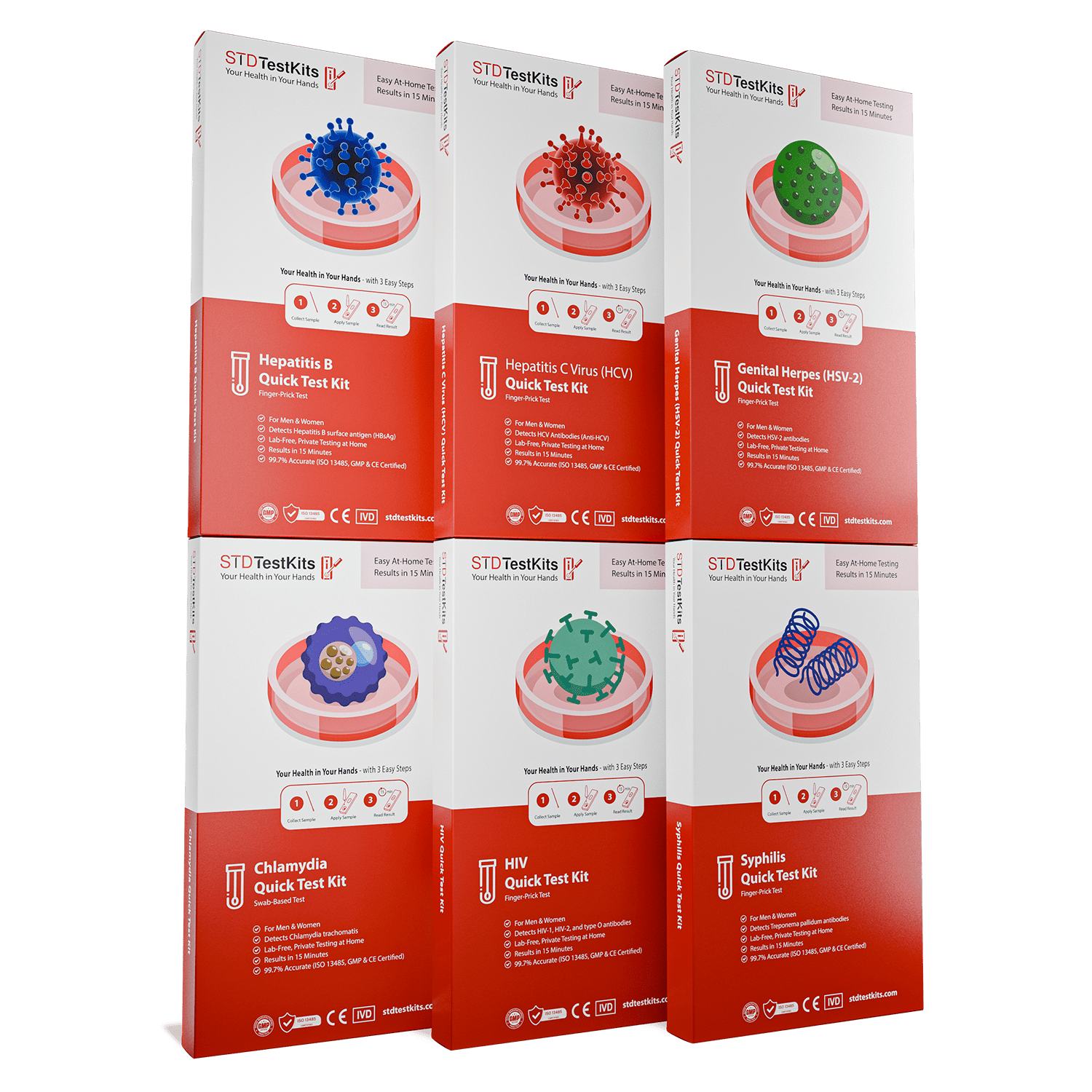6 STDs You Can Catch From Oral, Even If It Feels “Low Risk”
Quick Answer: First-time STD testing usually includes a private conversation, urine or blood sample, and optional physical exam. It's quick, confidential, and non-punitive, even for teens.
“I Was Shaking in the Waiting Room”: Why It’s Normal to Feel Scared
Elisa, 17, didn’t tell anyone when she made an appointment at a local clinic. “I thought I had a UTI, but I was also terrified it was something worse. I didn’t want my mom to find out. I sat in the waiting room shaking, thinking I’d be judged.”
“But the nurse just said, ‘You’re doing the right thing.’ That changed everything.”
This story isn’t rare. In fact, most teens feel a mix of fear, shame, and confusion their first time getting tested. You might be wondering:
- Does this mean I’m dirty? No. Getting tested is a normal part of being sexually responsible.
- Will they tell my parents? In many places, no. Most clinics offer confidential testing for minors.
- What if I test positive? Then you get treatment. Most STDs are curable or manageable.
This isn’t about blame. It’s about your body, your health, and your future.
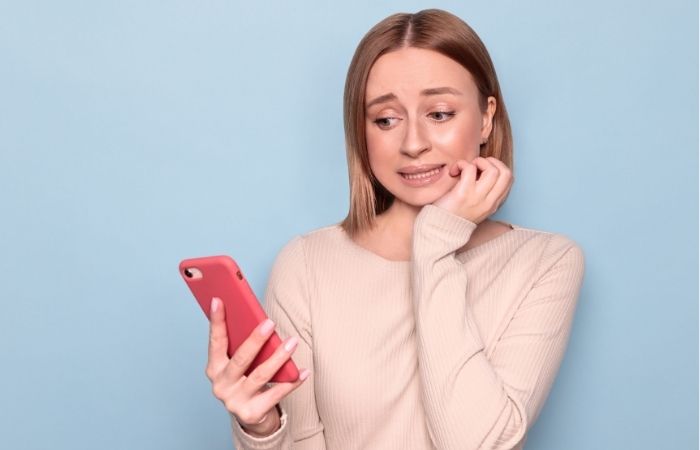
People are also looking for: Can You Get HIV from Oral Sex? What the Science Really Says
What Happens at the Clinic (No Scare Tactics, Just Facts)
You might be imagining a cold exam table, awkward questions, and a nurse who judges your entire existence. Let’s delete that image. Most STD clinics, especially ones that serve teens, are calm, kind, and surprisingly chill. Here’s what actually goes down, step by step.
Check-In: No, You Don’t Have to Announce “I Think I Have Herpes”
When you arrive, you’ll probably fill out a short form. Some clinics ask for your name, age, maybe your insurance info, but many let you test anonymously. You can literally write “Alex T.” and leave it at that. Nobody’s yelling your results across the room.
If it’s a walk-in clinic, you might wait a little. Bring headphones, breathe deep, and remember: everyone in that room is just trying to take care of themselves. You belong here.
Private Intake: Yes, They’ll Ask About Sex, No, You Don’t Have to Overshare
A nurse or provider will call you back and ask some questions. Stuff like:
- “Have you had vaginal, anal, or oral sex?”
- “Do you have any symptoms?”
- “Are your partners male, female, or both?”
You can answer honestly, skip anything that feels too much, or say “I’m not sure.” No one’s writing a moral report card. They just want to know what tests to run so you’re covered.
Sample Collection: AKA the Least Dramatic Part
Depending on what you’re getting tested for, here’s what might happen next:
- Urine sample: Pee in a cup, super common for chlamydia and gonorrhea. No need to strip down. Just hit the bathroom and come back.
- Cheek swab: Used for some HIV tests or oral STDs. It’s a soft cotton swab you rub inside your mouth. No pain, no blood, no drama.
- Blood test: A quick needle poke, usually for HIV, syphilis, or hepatitis. Feels like any other blood draw, mildly annoying, but over fast.
- Physical exam (optional): If you have visible bumps, sores, or rashes, they might offer to take a look. But it’s always up to you. Consent is the rule, not a suggestion.
You don’t have to strip naked unless you’re comfortable. If you’re unsure, just say, “Can you walk me through what that exam would involve?” You get to choose what happens to your body. Always.
After the Test: No Scarlet Letters, No Walk of Shame
Once the samples are collected, you’re done. Really. Some clinics give you a paper with info on when to expect results (usually 3–7 days), and how they’ll contact you (phone, text, secure portal).
If you did a rapid HIV test, you might get that result before you leave, just a 20-minute wait. If not, they'll tell you exactly how to follow up. No surprises.
Can’t Deal With In-Person? There’s Another Option
If you’re still too anxious to walk into a clinic, or worried about someone seeing you, there’s no shame in staying home. A Combo STD Home Test Kit gives you the same lab-grade accuracy, tests for multiple STDs at once, and ships in a boring, no-one-will-know box.
You collect your sample (usually urine, finger prick, or swab), mail it in, and get your results online. Easy. Private. No small talk with strangers.
Can I Get an STD Even If I Haven’t Had “Sex”?
This is one of the most searched questions from teens, and it’s valid. The answer is yes. STDs can spread through oral sex, skin-to-skin contact, and even shared sex toys.
Here’s what counts as risk, even if you haven’t had vaginal or anal intercourse:
- Oral sex: Can transmit herpes, gonorrhea, and syphilis
- Genital rubbing (“dry humping”): Herpes and HPV can still spread
- Sharing toys: Especially if not cleaned properly or used between partners
You don’t need to justify why you’re getting tested. If you have a body and sexual feelings (or experiences), you deserve to know your status. That’s not fear, it’s freedom.
Case in Point: A 2024 study in the Journal of Adolescent Health found that 1 in 4 teens who tested positive had no symptoms and considered themselves “low-risk.” Testing isn’t just for people who feel sick. It’s for people who care.
Will My Parents Find Out?
This question comes up constantly, and the answer depends on where you live. But in most U.S. states, minors can legally access STD testing without parental consent.
Here’s what you need to know:
- Planned Parenthood and community clinics often provide confidential teen testing, no ID, no insurance, no names needed.
- If you use your family’s insurance, there may be an Explanation of Benefits (EOB) mailed to your home.
- At-home test kits are another private option. You collect your own sample, mail it in, and get results online.
STD Test Kits offers discreet packaging, fast turnaround, and tests for multiple STDs in one combo kit.
Bottom line: You don’t need anyone’s permission to protect your health. And you have options that respect your privacy.
“It Didn’t Hurt, It Felt Like Relief”: The Emotional Side of Testing
Jordan, 18, delayed testing for six months after a hookup they couldn’t stop overthinking. “I was terrified. But when I finally went in, it was… fine. The nurse was kind. No judgment. I actually felt proud walking out.”
“Getting tested didn’t mean something was wrong. It meant I was strong enough to want to know.”
This is a truth rarely said out loud: the relief of knowing is often bigger than the fear of testing. Especially when you’ve been spiraling with Google searches, late-night anxiety, or ghost symptoms your brain keeps inventing.
Testing gives you clarity. And clarity is way sexier than shame.
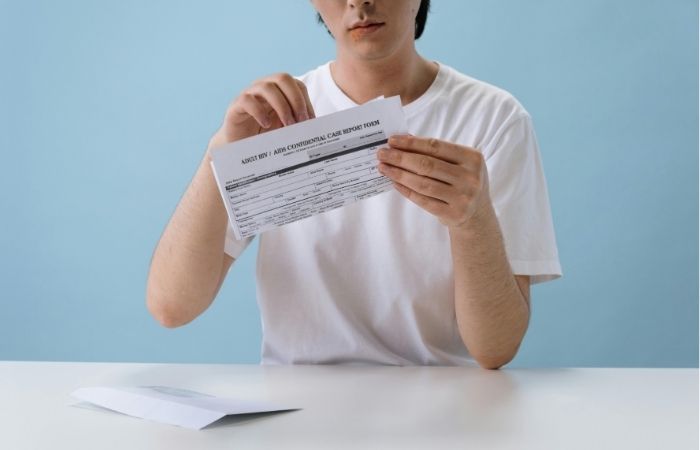
People are also reading: Can You Get Chlamydia in Your Throat? Yes, Here’s What It Feels Like
Clinic vs. At-Home Testing: What’s Better for You?
There’s no “right” answer here, just what’s right for you. Whether you’re someone who needs a nurse to walk you through everything, or someone who’d rather do the whole thing in pajamas with zero human contact, both options are legit.
When a Clinic Makes Sense
STD clinics aren’t scary torture chambers, they’re safe spaces full of people who’ve seen it all, heard it all, and don’t flinch. Here’s why they might be a good fit for you:
- You’ve got symptoms you want checked out. Like bumps, burning, unusual discharge, or anything new that’s freaking you out. A provider can look and say, “Yep, let’s swab that.”
- You want in-person support. Sometimes hearing “You’re okay” from a real nurse hits different. Especially if you’re spiraling from WebMD at 2AM.
- Cost is an issue. Many student health centers, teen clinics, and nonprofits offer free or super low-cost testing. You don’t need insurance, or cash.
- You need fast results or a physical note. Some people test before hookups, start birth control, or just want to show a partner proof. Clinics can help with all of that.
If you woke up with a painful sore or think your partner exposed you recently, the clinic’s your move. They can assess, swab, prescribe, everything, same day.
Why At-Home Testing Might Be Your Power Move
Home testing hits different for people who value privacy, flexibility, or just... can’t with public healthcare systems. Here’s who this option is great for:
- You want zero small talk. No awkward eye contact. No explaining why you’re there. Just swab, ship, done.
- You’re hiding it from someone at home. Parents, roommates, partners, you don’t owe anyone your health status. At-home kits arrive discreetly, usually in plain packaging.
- Your schedule’s wild. Class, work, sports, overthinking, sometimes the thought of booking an appointment feels like a whole emotional mountain. This way, you test on your own time.
The 10‑in‑1 At‑Home STD Test Kit is especially clutch, it checks for HIV, Chlamydia, Gonorrhea, Syphilis, and Hepatitis all at once. Same lab accuracy. Same results. No waiting room energy.
Can You Start with One and Switch Later?
Absolutely. Think of testing like building a habit. Home testing can be your soft launch, a no-pressure way to get used to the process. If something comes up, or you want to talk to someone in person, the clinic is still there. You don’t have to pick a side forever.
Pro tip: Some people test at home every few months and only go to a clinic if they notice symptoms or have a specific concern. That combo works great, especially if you're juggling fear, logistics, or just getting used to this whole “taking care of my sexual health” thing.
Still Torn?
Here’s the bottom line: testing is better than not testing. Whether you pee in a clinic bathroom or swab in your bedroom, you’re doing something brave and smart. That choice says, “I respect myself, and my partners.”
And that? That’s hot.
What If I Test Positive?
This is probably the scariest thought running through your head. Let’s walk through it together, without panic, and without stigma.
- Most STDs are curable. Chlamydia, gonorrhea, and syphilis can all be treated with antibiotics.
- Others are manageable. Herpes and HIV don’t go away, but with meds, you can stay healthy and prevent transmission.
- No one reports you to your school or parents. STD results are private. Even if you're under 18.
Getting a positive result doesn’t mean you’re “dirty” or “bad.” It means your body deserves care. And you took the first step toward getting it.
One nurse from a Los Angeles teen clinic put it best: “You’re not in trouble. You’re taking responsibility. And that’s brave as hell.”
“Is This Just for Girls?” Why Guys Need to Test Too
STD testing is not a “girl thing.” In fact, undiagnosed STDs are rising fastest among teen and young adult men, especially those who don’t experience symptoms or think testing “isn’t for them.”
Here’s why guys often skip testing, and why that’s a problem:
- Many STDs don’t cause discharge or pain in males, but can still damage fertility or infect partners
- Some believe condoms block all STDs, they don’t. Herpes, HPV, and syphilis can spread through skin-to-skin contact
- Fear of judgment, but most providers are used to seeing nervous first-timers and keep it totally confidential
Testing isn’t about masculinity. It’s about maturity. And protecting both yourself and your partners is one of the most respectful things you can do.
“But I Don’t Have Symptoms…” (Why That Doesn’t Matter)
It’s easy to think that if nothing looks weird, burns, itches, or oozes, you’re fine. But most STDs have no symptoms at all, especially early on.
Here’s what the data shows:
- Chlamydia: 70–90% of infected teens have no noticeable symptoms
- HPV: Can remain silent for years before causing warts or abnormal Pap results
- HIV: May not show signs for months, but can still be transmitted
Translation? You could be carrying something without knowing, and unknowingly pass it to someone else. That’s not your fault. But it is your opportunity to take action.
Testing isn’t just about symptoms. It’s about making sure your body is truly in the clear.
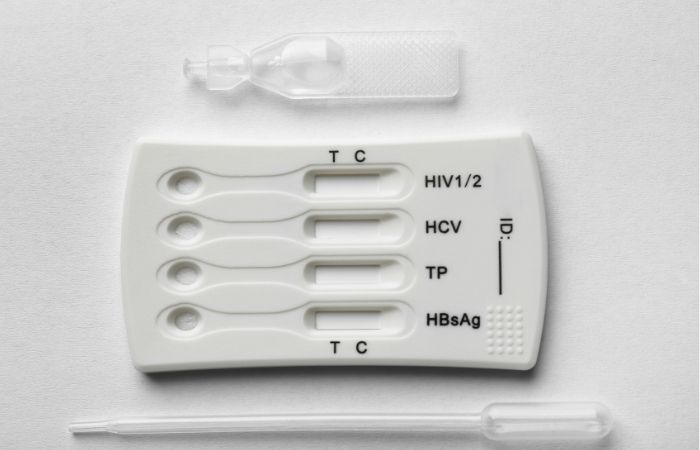
People are also reading: Why Syphilis Is Spiking Among Straight Men, and Why It Matters
FAQs
1. Can I get tested without my parents finding out?
In most states? Yes. Clinics like Planned Parenthood offer confidential testing, even for minors. And if you’re really stressing about privacy, at-home kits ship in unmarked packaging. Nobody needs to know but you.
2. Is STD testing painful?
Nah, not really. Peeing in a cup? Easy. Blood draw? A quick pinch. Swab? Over in seconds. Most people say the anxiety before the test hurts more than the test itself. True story.
3. What if I haven’t had “real sex”? Do I still need to test?
That depends. If there was oral, skin-to-skin grinding, or toy-sharing, yep, it still counts as possible exposure. One girl in a clinic I worked with tested positive for herpes after only having oral. No shame. Just facts.
4. How much does this cost?
Depends on where you go. Some school clinics and nonprofits offer free or super low-cost testing. At-home kits? Usually $40–$120, depending on how many STDs you want to check for. (The combo kits are your best bang-for-buck.)
5. What if I don’t have any symptoms?
Perfect time to test. Most STDs are sneaky, no itching, no bumps, no warning signs. Think of it like checking your phone battery. You don’t wait until it dies, right?
6. How fast do results come back?
Clinics can take a few days to a week. Some offer rapid HIV results in 20 minutes. At-home test kits usually email your results within 3–5 days of sending your sample.
7. I’m a guy and I feel fine, why would I need to test?
Here’s the deal: STDs don’t always shout in guys, they whisper. You might never feel a thing but still pass something to a partner. Testing makes you someone who gives a damn. Period.
8. What if the test is positive?
Then you treat it. Most STDs are totally curable. And for the ones that aren’t? There’s medication to manage them. Testing doesn’t mean your life’s over, it means you’ve got a plan. Power move.
9. Can I get tested at school?
Some high schools and most colleges offer confidential testing, but not all. If you're unsure or it feels awkward, search for a local teen clinic or use an at-home option. You’ve got choices.
10. What if I’m queer or nonbinary?
First of all, hell yes, your health matters. Not every clinic is perfect, but many places (and all at-home tests) let you skip misgendering, assumptions, or awkward questions. If you don’t feel respected, that’s on them, not you.
You Deserve Answers, Not Assumptions
If you’ve made it this far, you already know the truth: getting tested doesn’t mean you’ve done something wrong. It means you care, about your health, your body, and your future. Whether it’s your first test or just your first time feeling brave enough to ask questions, you’re not alone in this.
Testing isn’t punishment. It’s power. It’s peace of mind. It’s love, for yourself, and for the people you might share intimacy with down the road. Ready to stop spiraling and start knowing? Order a confidential STD kit today. No waiting room, no awkward questions, just answers you can trust.
Sources
1. Planned Parenthood: STD Testing Basics
2. NHS: Teen Sexual Health Services
3. Getting Tested for an STI: Your Guide to How It Works




